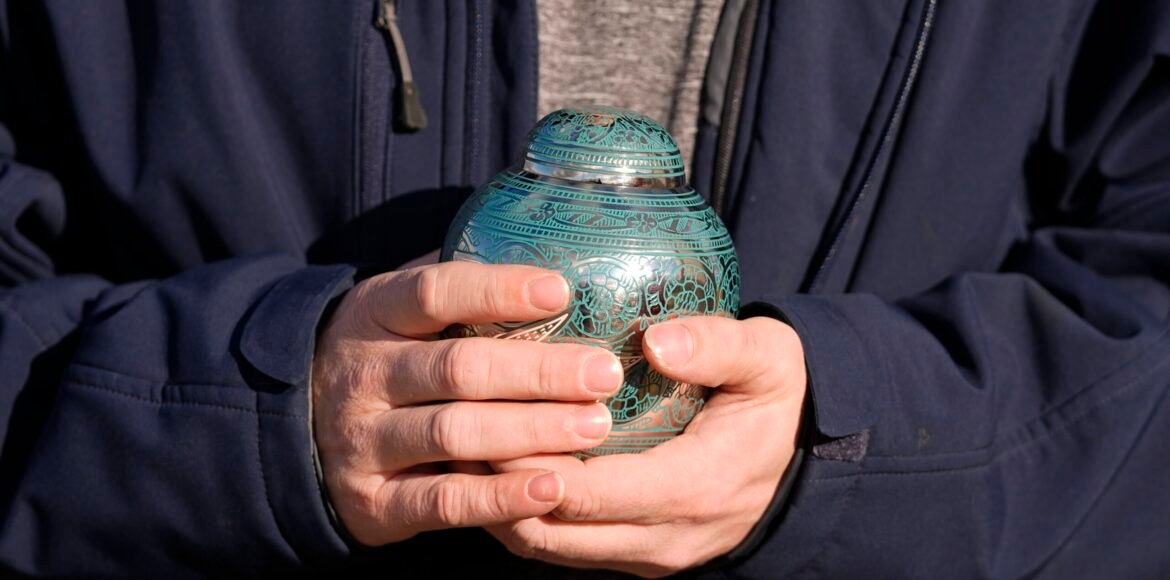“Forgotten But Not Gone”: 300,000 Ashes Unclaimed Across UK Funeral Homes, Say Undertakers

In dusty storerooms behind serene chapels, behind rows of decorative urns, and in corners rarely seen by grieving families, a silent crisis has been growing for decades. According to recent estimates by the National Association of Funeral Directors (NAFD), up to 300,000 people’s ashes remain unclaimed across funeral homes in the UK.
This revelation, brought to light during a Law Commission consultation, has shaken both the public and professionals in the death care industry, raising uncomfortable questions about how we handle memory, mourning, and the final act of honoring those we’ve lost.
A Forgotten Legacy in Urns
One of the most prominent voices in this unfolding issue is Matthew Uden, director of W. Uden and Sons, a respected funeral home with branches across South London. In his own parlours, Uden holds the ashes of around 200 people—some untouched since the 1960s.
Among them: the remains of Elsie Elanor Agnes Emler, a woman who passed away at Farnborough Hospital on 15 April 1965. Aside from a Certificate of Cremation, no records or family contact exists.
Uden reflects on the pattern:
“I think the main reason is families don’t know what to do with them. They don’t have a definite plan… As years pass, they feel, well, we might as well just leave them with the funeral directors.”
His words echo the experiences of countless funeral directors who have been holding urns not for days or months—but decades.

A Legal Crossroads
In response, the Law Commission—the body responsible for reviewing legal frameworks in England and Wales—has proposed broad reforms to the law of burial and cremation.
The draft reform suggests that if a funeral director receives no instruction or contact from next of kin within four weeks, they should be legally allowed to return the ashes to the crematorium. Importantly, this would apply retrospectively, covering the vast accumulation of what are now being referred to as “legacy ashes.”
Rachel Bradburne, Director of External Affairs for the NAFD, supports the Law Commission’s stance but emphasizes the need for a dual solution.
“There needs to be something put in place going forward so the backlog doesn’t build up… There also then needs to be a solution to address the legacy ashes.”
One of the suggestions on the table includes mass scattering ceremonies—public or semi-public events where large numbers of ashes can be laid to rest with dignity.
The Emotional Tension
This issue is not just administrative—it’s deeply emotional. An urn is not merely a container of cremated remains, but a symbol of a life once lived, of relationships, stories, and grief. And yet, due to inaction or confusion, these vessels often become forgotten artifacts, resting silently behind closed doors.
At Dei Gratia Urns, we believe every life deserves to be remembered with intention. Stories like these highlight the emotional disconnect that can happen after cremation. Families often struggle with “what to do next”, and without proper guidance, they unintentionally leave the remains indefinitely.
Many of the unclaimed urns are unmarked, unengraved, and stored with minimal documentation. Over time, connections are lost—family members pass on, addresses change, memories fade.
And yet, in many cases, the ashes remain, a solemn reminder that remembrance is more than a moment—it’s a responsibility.
Why Are So Many Ashes Unclaimed?
Experts point to a variety of reasons:
- Lack of planning: Many families never discuss final wishes or don’t consider what to do with ashes after cremation.
- Emotional avoidance: Some find it too painful to revisit the loss, choosing to delay or avoid picking up the urn.
- Unclear responsibility: In complex family situations, it’s sometimes unclear who is “in charge” of collecting and caring for the ashes.
- Ignorance of process: Some assume the funeral home automatically handles it or simply forget over time.
As society evolves in how it handles death and memorialization, these gaps in communication and planning are becoming painfully visible.
The Path Forward
The Law Commission’s proposal is a step in the right direction, and with public consultation underway, funeral homes are urging families to reconnect and reclaim.
But more than legislation, what’s needed is a cultural shift—towards proactive end-of-life conversations, education on urn usage, and guidance from funeral professionals.
Dei Gratia Urns recommends including clearly labeled contact information inside urn packaging, engraved identifiers, or even QR-coded memorial tags. These small additions can ensure that a loved one’s memory is never lost—no matter the passage of time.

Dignity in the Details
Our mission at Dei Gratia Urns is not just about urn design—it’s about legacy. We’re inspired to create urns that families don’t want to forget or avoid, but proudly display, honor, and cherish. Every urn should feel like a tribute, not a burden.
Perhaps the 300,000 forgotten ashes aren’t forgotten by spirit—only by process. It’s time to bridge that gap.
If you suspect a relative’s ashes may still be with a funeral home, now is the time to reach out. And if you’re planning future arrangements, don’t delay those difficult but vital conversations.
Every urn tells a story. Let’s make sure it’s heard.



